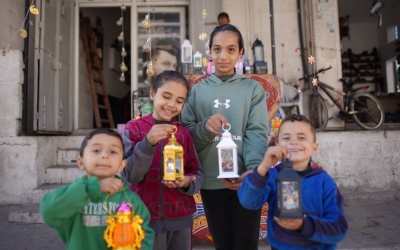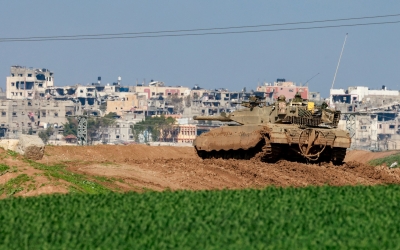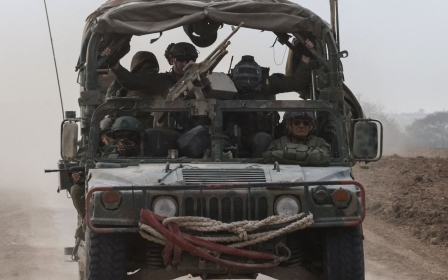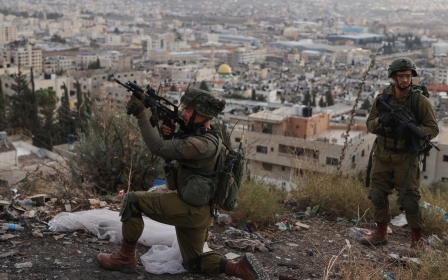War on Gaza: How Israeli army brutality killed a disabled Palestinian man
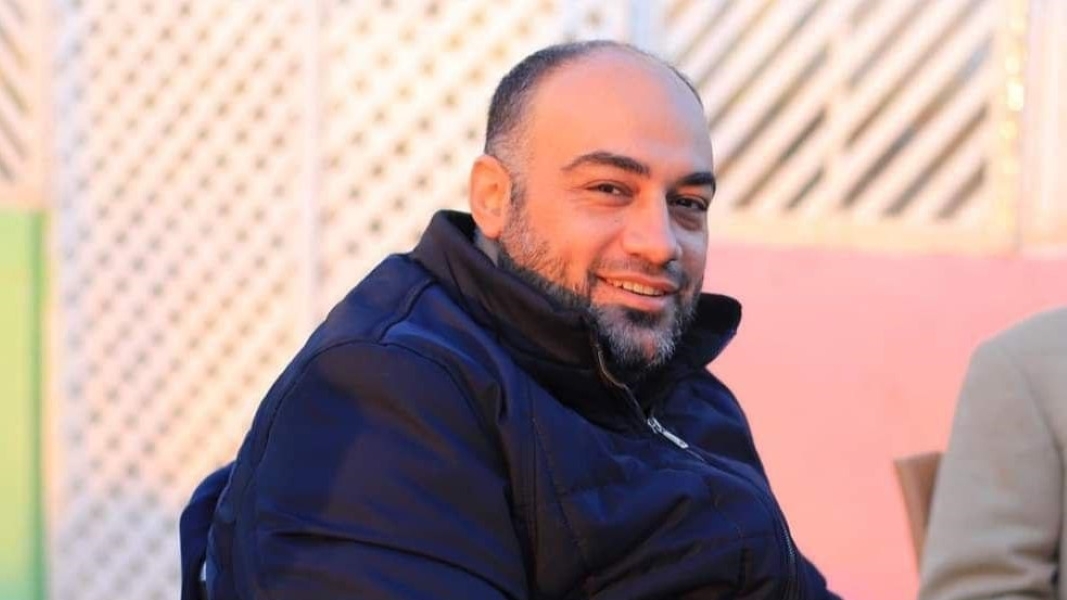
The particular vulnerabilities of disabled people living in Gaza has been highlighted by the case of Ezz al-Din al-Banna, 40, a disabled man who died in Israeli custody last month.
Banna, who was paralysed from the waist down, was arrested by the Israeli army in late November from a building where he was seeking shelter in Gaza City.
Despite being disabled, Banna was brutally beaten and dragged across the floor by the Israeli soldiers who arrested him.
According to relatives, the wounds sustained in the attack would eventually cause complications that would lead to his death in February.
“He was treated with brutality by the Israeli soldiers, without any regard for his disability,” recalled Mohammed al-Banna, a cousin who was a companion to Ezz al-Din throughout their multiple displacements since 7 October.
Mohammed, 30, was with Ezz al-Din during the first few hours of his detention and provided Middle East Eye with a detailed account of his relative’s suffering before his death.
Ezz al-Din joins more than 31,000 Palestinians killed by Israel at the time of publication.
The vast majority have been killed in indiscriminate bombing by the Israeli army, but many have also been killed by sniper fire, quadcopter attacks, summary executions, starvation and, like Ezz al-Din, as a result of beatings and torture.
“We had stayed in the house where we sought refuge for two days,” recalled Mohammed.
“On the third day, Israeli forces stormed the building at around 5am. Until around 6.30am they just shot at the building continuously, as well as firing sound bombs into it.
“They knocked on our door and I went to open it. A soldier immediately raised his M16 rifle at me.”
The soldiers ordered the group of men, which included Ezz al-Din and his relatives, to remove their clothes and stand against the wall.
They were then ordered to supply their personal information. The group of men were later told to leave the building but without Ezz al-Din’s wheelchair. Mohammed and another relative had to carry him down to ground level.
As they did, they were presented with a sight that made clear the consequences of not complying with the Israelis.
“While coming down the stairs carrying Ezz, we saw a neighbour, Abu Mohammed Humeid, killed and lying on the ground,” Mohammed recalled.
“They shot him because he had stepped out of his apartment without permission.”
'While coming down the stairs carrying Ezz, we saw a neighbour, Abu Mohammed Humeid, killed and lying on the ground'
- Mohammed el-Banna, cousin
Outside they were again forced to sit, as Israeli soldiers restrained their hands with zip-ties.
Mohammed said that a 15-hour ordeal, sitting on shards of broken glass, was occasionally punctuated by an Israeli soldier coming over to slap him and Ezz al-Din’s brother, Ihab, across the face.
Ezz al-Din, who was separated from his family members, faced additional hardships, as he was denied food and water and severely beaten by the soldiers.
Mohammed was released after being interrogated and then ordered to walk into the southern Gaza Strip.
Ezz was taken away by the Israeli soldiers without his wheelchair.
Mohammed could not see where his cousin was being taken because a sniper behind him was firing shots at anyone who turned around.
An Israeli soldier also warned him that if he looked left or right, a tank shell would be fired at him.
“But we knew that they took Ezz to the prison,” Mohammed said.
‘Easy prey’
Before Israel began its bombardment of Gaza after 7 October, people with disabilities accounted for just over two percent of the enclave’s 2.3 million residents.
This meant that around one in five households in Gaza had at least one family member with a disability, according to the Palestinian Central Bureau of Statistics (PCBS).
According to estimates by local human rights groups, the latest Israeli assault has resulted in approximately 12,000 new cases of disability so far.
More than 70,000 people have been injured in varying severity since the war started.
Zarif al-Ghurra, a disabled rights activist in Gaza and a friend of Ezz al-Din, said Banna was disabled after an accident in 2007.
The incident had resulted in paralysis of his lower body and difficulties with carrying out basic bodily functions.
“Ezz had long tried to challenge his disability, and travelled to Turkey and Egypt a lot for treatment,” Ghurra recalled.
“During this attack, he was easy prey for the Israeli occupation,” he added.
“When the Israeli army stormed the area where Ezz was staying, most residents managed to flee, but he could not because of his disability.
“He was detained along with his brother, who refused to leave him behind.”
Death in detention
Figures obtained by Haaretz last week show that 27 Palestinian detainees from Gaza have died under mysterious circumstances while in custody at Israeli military facilities.
Those facilities include the Sde Teiman base, the Anatot base in Jerusalem and other temporary bases.
The United Nations Special Rapporteur on torture Alice Jill Edwards stated on Friday that she had received multiple reports of mass detention, ill-treatment, and forced disappearance of Palestinians who were detained from the northern parts of the Gaza Strip by the Israeli military.
Ghurra has also spoken to detainees who recall Ezz al-Din’s arrival at Ayalon (al-Ramla) prison.
They told him that Banna was “treated with cruelty” and that he was dragged along the street by Israeli soldiers.
“When he arrived at the detention centre, he was dragged in, which caused severe wounds to his legs and feet,” Ghurra said.
The old friend of Ezz said that it was this treatment that led to his death, possibly through an infection picked up while having an open wound dragged along the floor.
When Banna entered the prison, fellow captives noticed a foul smell coming from his legs due to an untreated and infected wound.
They pleaded with the prison authorities to get Banna help, but their requests for help were denied until his condition deteriorated over the months he was in detention.
“Only then did they send him to the hospital, and it was there that he died,” Ghurra said.
Middle East Eye has approached the Israeli army for a response to the allegations contained in this article.
Middle East Eye propose une couverture et une analyse indépendantes et incomparables du Moyen-Orient, de l’Afrique du Nord et d’autres régions du monde. Pour en savoir plus sur la reprise de ce contenu et les frais qui s’appliquent, veuillez remplir ce formulaire [en anglais]. Pour en savoir plus sur MEE, cliquez ici [en anglais].


